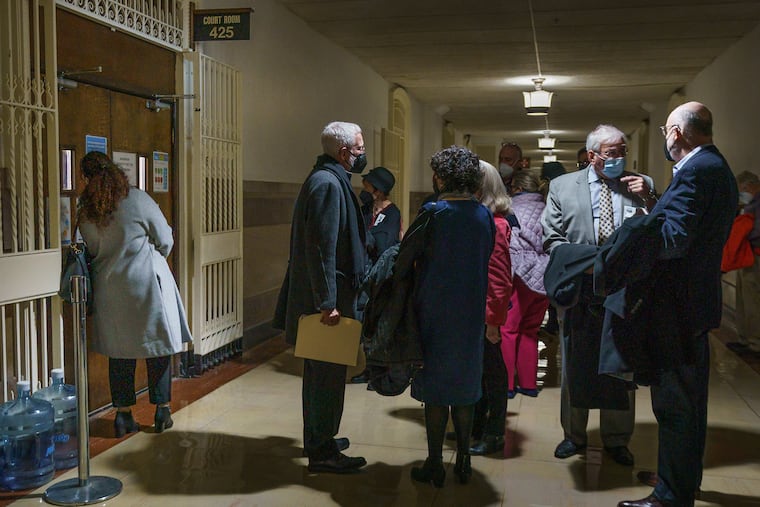Court wants more info on plan to transfer priceless collection of city historical treasures to Drexel
Judge said more time is needed to assess whether Drexel and the City are doing right by George Washington's desk, Mike Schmidt's batting helmet, and more than 100,000 other artifacts.

Judge Sheila Woods-Skipper has decided she wants to hear more information about the proposed transfer of the priceless collection of Philadelphia’s historical patrimony from the stewardship of the city to Drexel University before she will approve the agreement.
At a hearing in Orphans’ Court Monday, Woods-Skipper did hear some testimony from city and Drexel officials about plans to transfer the city-owned collection of the Philadelphia History Museum, permanently closed since 2018, but said more specifics need to be spelled out in the agreement between the two parties.
“The devil is in the details,” she noted near the end of nearly five hours of hearings.
“I have certainly heard more details presented in the testimony today,” Woods-Skipper continued. “So it doesn’t seem that it would be a stretch for those details to be included in the agreement where everybody has signed off on it and has a clear understanding and there is no room for misinterpretation.”
What Woods-Skipper said she found particularly concerning were descriptions of conditions at the current storage facility that now houses everything from George Washington’s presidential desk to Jimmy Rollins’ spikes — well over 100,000 artifacts and artworks, product of a gift to the city from radio magnate A. Atwater Kent, and now representing the sweep of more than three centuries of Philadelphia history. Opponents of the current agreement have said the deal doesn’t include enough provisions to ensure that the artifacts are properly cared for.
“My major concern at this point is the storage,” Woods-Skipper said, “making sure that [the artifacts] are in a place where they will not be damaged, and where the climate is appropriate and the temperature and things of that nature.”
Orphans’ Court has jurisdiction over nonprofits, trusts, estates, and related legal entities. Woods-Skipper was asked to approve an agreement between Drexel and the city that is laid out in a 264-page plan now posted on the website of the history museum. Critics of the arrangement argue that there is a paucity of information in the plan about financing, conservation of artifacts, oversight, and other matters.
John Fry, Drexel president, testified that he had traveled to the current storage facility in Northwest Philadelphia. A leak in the roof has lead to climate control issues, and while both parties want the collection moved somewhere more appropriate, the process is stuck in limbo until the agreement between the city and Drexel is finalized.
“I’ve been to the warehouse,” Fry told the court, “prompted by the worry about, honestly, the quality of the environment for my staff.”
“I would just feel better if we can get this into a more professional collection storage environment so that the materials are in the best place they can be,” Fry said.
Various officials, including Derek Gillman, Drexel’s executive director of collections and exhibitions, said such a move to different storage quarters is in the works. A facility has been identified, Gillman said, but a contract to re-house the collection is not in place yet.
In court, Kathleen Foster, curator of American art at the Philadelphia Museum of Art, called the current location “inadequate,” adding that details of climate control, security, and staffing should be “spelled out” in the city-Drexel agreement.
Woods-Skipper said at the end of testimony, “I believe as a court I have an obligation to review the transfer agreement before making a final decision.”
Drexel and the city huddled and said they could have a completed agreement with details on staffing, conservation, funding, and related matters ready in three weeks. No return court date has been set.
Frank Hoeber, a critic of the deal, said he was surprised and “thrilled” by the extra time.
David Brigham, head of the Historical Society of Pennsylvania, which was denied the right to participate in the case at an earlier hearing, said yesterday that he was “pleased that the judge heard everyone in the room and decided that there was not enough information to decide whether to approve or not approve the city’s petition.”
Gillman, of Drexel, said a three-week delay should not disrupt the timetable for the transfer.
“Three weeks is an additional step in the process, which we’d be doing that anyway -- so it’s not a delay,” said Gillman, noting that the city and Drexel would need those details to complete the agreement anyway.